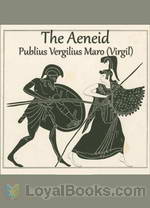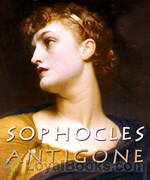|
Books Should Be Free Loyal Books Free Public Domain Audiobooks & eBook Downloads |
|
|
Books Should Be Free Loyal Books Free Public Domain Audiobooks & eBook Downloads |
|
Classics and Books from Antiquity |
|---|
|
Book type:
Sort by:
View by:
|
By: Pliny the Elder (23-79) | |
|---|---|
 Boys' and Girls' Pliny Vol. 1
Boys' and Girls' Pliny Vol. 1
The Natural History of Pliny the Elder is one of the largest single works to have survived from the Roman Empire. The full work consists of 37 books, covering more than 20.000 topics ranging from astronomy and mathematics to botany and precious stones. The book became a model for later encyclopaedias and gives a fascinating overview of the state of scientific knowledge almost 2000 years ago. This version of the Natural History has been adapted for a younger audience. This first volume contains Book I and Book II out of a total of 9 books. | |
By: Plotinus (204-270) | |
|---|---|
 Enneads
Enneads
The six Enneads are the collected writings of the Neoplatonic philosopher Plotinus arranged by his student Porphyry into fifty-four books with each Ennead containing nine. The translator Kenneth Sylvan Guthrie arranged these books chronologically rather than according to Porphyry's numeration. This recording is organized according to Porphyry's numeration with Roman numerals indicating the Ennead and Hindu-Arabic numerals indicating the book e.g. VI.9 would be the ninth book of the sixth Ennead. A hyperlinked table of contents at Volume 1 Page 3 of the gutenberg.org text will enable you to jump to the specific Ennead if you wish to read along with the recording. | |
By: Publius Cornelius Tacitus | |
|---|---|
 A Dialogue Concerning Oratory, or the Causes of Corrupt Eloquence
A Dialogue Concerning Oratory, or the Causes of Corrupt Eloquence
The scene of the Dialogus de Oratoribus, as this work is commonly known, is laid in the sixth year of Vespasian, 75 a.D. The commentators are much divided in their opinions about the real author; his work they all agree is a masterpiece in the kind; written with taste and judgement; entertaining, profound, and elegant. It is normally considered to have been written by Tacitus, even though some ascribe it to Quintilian. The main subject is the decadence of oratory, for which the cause is said to be the decline of the education, both in the family and in the school, of the future orator. In a certain way, it can be considered a miniature art of rhetoric. | |
By: Publius Vergilius Maro (70 BC - 19 AD) | |
|---|---|
 The Aeneid
The Aeneid
The Aeneid is a Latin epic written by Virgil in the 1st century BC that tells the legendary story of Aeneas, a Trojan who traveled to Italy, where he became the ancestor of the Romans. The first six of the poem’s twelve books tell the story of Aeneas’ wanderings from Troy to Italy, and the poem’s second half treats the Trojans’ ultimately victorious war upon the Latins, under whose name Aeneas and his Trojan followers are destined to be subsumed. The poem was commissioned from Vergil by the Emperor Augustus to glorify Rome... | |
 The Eclogues
The Eclogues
This book of poems, written between 42 en 39 BC, was a bestseller in ancient Rome, and still holds a fascination today. Held to be divinely inspired not only by the Romans themselves, but by the Medieval Catholic church, The Eclogues is one of the most beloved collections of Latin short poetry. | |
By: Samuel Butler (1774-1839) | |
|---|---|
 The Atlas of Ancient and Classical Geography
The Atlas of Ancient and Classical Geography
| |
By: Sophocles (495-406 BC) | |
|---|---|
 Antigone
Antigone
This is the final installment in Sophocles's Theban Plays, following Oedipus Rex and Oedipus at Colonus. Oedipus's daughter Antigone deliberately breaks the laws of Thebes when she buries her brother's body and is sentenced to death. She clashes with Creon, the King of Thebes, over what constitutes justice and morality: the laws of the state or the laws of the individual. | |
 Electra
Electra
Sophocles' play dramatizes the aftermath of Agamemnon's murder by his wife Clytemnestra and her lover Aegisthus. His daughter Electra is hungry for revenge and longs for the return of her brother Orestes to help her achieve her ends. | |
By: T. L. (Thomas Louis) Haines (1844-) | |
|---|---|
 Museum of Antiquity A Description of Ancient Life
Museum of Antiquity A Description of Ancient Life
| |
By: Thomas Bulfinch (1796-1867) | |
|---|---|
 Bulfinch's Mythology: the Age of Fable
Bulfinch's Mythology: the Age of Fable
| |
By: Thomas Hodgkin (1831-1913) | |
|---|---|
 Theodoric the Goth
Theodoric the Goth
Theodoric the Great (~454-526) was king of the Ostrogoths during the time of the terminal decline of the Western Roman Empire. After wandering with his people through the Balkans, at times allied with the Eastern Empire, and at others, its enemy, he was invited by the Emperor Zeno to invade and conquer Italy on behalf of the Empire. He defeated the Germanic king Odovacar, who had himself deposed the last Emperor of the West, and established the Ostrogothic Kingdom in Italy. He became known as "King of the Goths and Romans in Italy", ruling according to the principle of civilitas. His reign was a time of stability and prosperity. ( Patrick Eaton) | |
By: Titus Lucretius Carus (94? BC - 49? BC) | |
|---|---|
 On the Nature of Things
On the Nature of Things
Written in the first century b.C., On the Nature of Things (in Latin, "De Rerum Natura") is a poem in six books that aims at explaining the Epicurean philosophy to the Roman audience. Among digressions about the importance of philosophy in men's life and praises of Epicurus, Lucretius created a solid treatise on the atomic theory, the falseness of religion and many kinds of natural phenomena. With no harm to his philosophical scope, the author composed a didactic poem of epic flavor, of which the imagery and style are highly praised. | |
By: Unknown | |
|---|---|
 The Dhammapada
The Dhammapada
The Dhammapada is is a Buddhist scripture, containing 423 verses in 26 categories. According to tradition, these are verses spoken by the Buddha on various occasions, most of which deal with ethics. It is is considered one of the most important pieces of Theravada literature. Despite this, the Dhammapada is read by many Mahayana Buddhists and remains a very popular text across all schools of Buddhism. – Excerpted from Wikipedia | |
 The Metamorphoses of Ovid Vol. I, Books I-VII
The Metamorphoses of Ovid Vol. I, Books I-VII
| |
 Plutarch: Lives of the noble Grecians and Romans
Plutarch: Lives of the noble Grecians and Romans
| |
 Clouds
Clouds
| |
 Theaetetus
Theaetetus
Theaetetus (Ancient Greek: Θεαίτητος) discusses concepts including perception, true judgment and knowledge. Socrates compares the human mind to a piece of wax and is critical of lawyers who seek only to persuade. | |
 Crito
Crito
| |
 Hellenica
Hellenica
| |
 Parmenides
Parmenides
Parmenides (Ancient Greek: ΠΑΡΜΕΝΙΔΗΣ) recounts a meeting between Socrates, Zeno and Parmenides. Topics discussed include universals, plurality and the One. | |
 The Economist
The Economist
| |
 The Athenian Constitution
The Athenian Constitution
| |
 Odysseus, the Hero of Ithaca Adapted from the Third Book of the Primary Schools of Athens, Greece
Odysseus, the Hero of Ithaca Adapted from the Third Book of the Primary Schools of Athens, Greece
| |
 The Memorabilia
The Memorabilia
| |
 On Horsemanship
On Horsemanship
| |
 Statesman
Statesman
Statesman (Ancient Greek: Πολιτικός) discusses God's role in maintaining the universe and describes the statesman as a good shepherd who promotes intermarriage between the orderly and courageous. | |
 Sophist
Sophist
Sophist (Ancient Greek: Σοφιστής) discusses being and not-being while drawing a distinction between the philosopher and the sophist. | |
 Cratylus
Cratylus
Cratylus (ΚΡΑΤΥΛΟΣ) discusses whether things have names by mere convention or have true names which can only be correctly applied to the object named and may have originated from God. | |
 Complete Works of Plutarch — Volume 3: Essays and Miscellanies
Complete Works of Plutarch — Volume 3: Essays and Miscellanies
| |
 Charmides
Charmides
Charmides (Χαρμίδης) discusses the virtue of temperance. | |
 The Metamorphoses of Publius Ovidus Naso in English blank verse Vols. I & II
The Metamorphoses of Publius Ovidus Naso in English blank verse Vols. I & II
| |
 Agesilaus
Agesilaus
| |